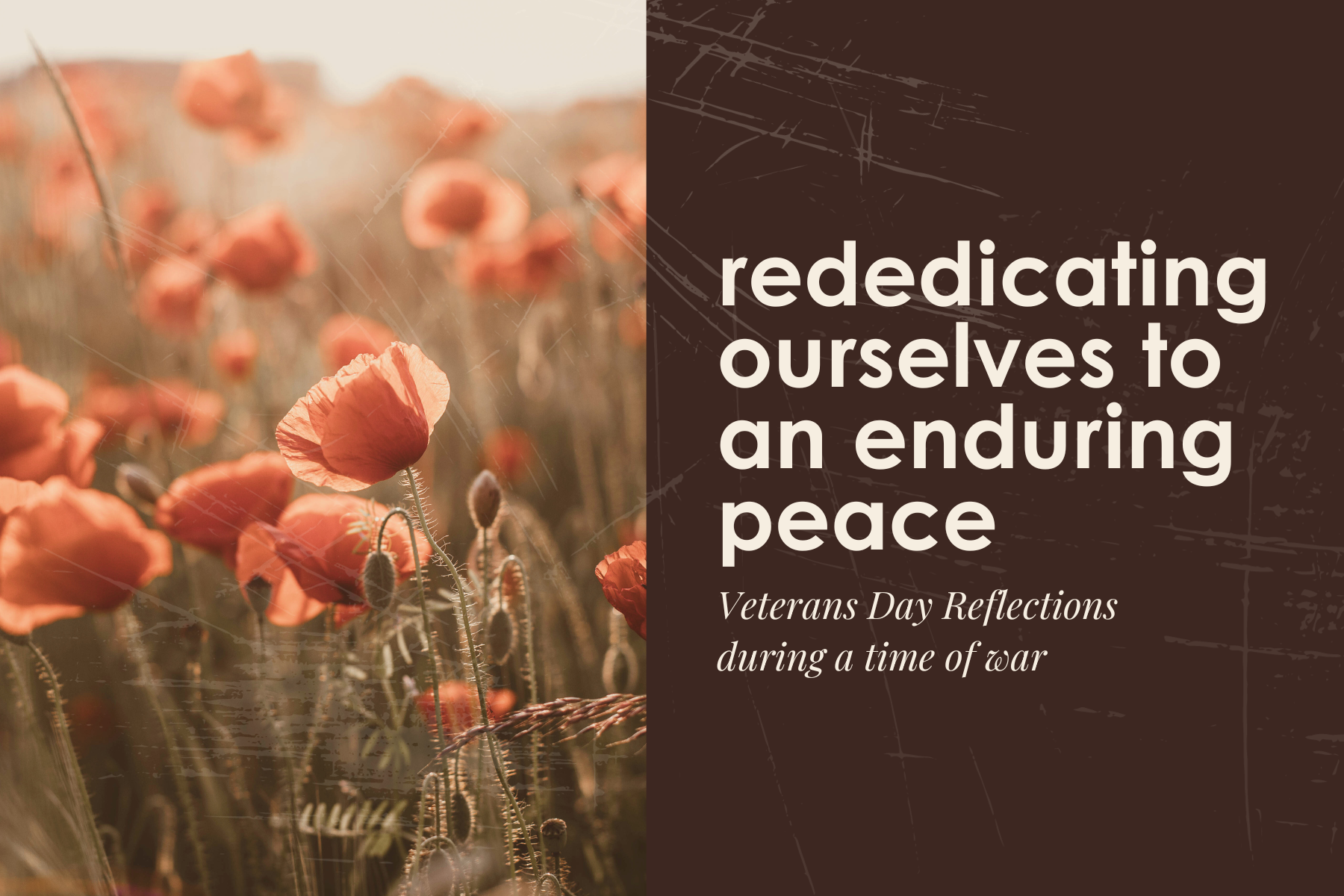Today Veterans Day is observed in the United States. In between calling for a #ceasefire, educating on colonial and imperial oppression, and holding space to radically imagine worlds where peace is precious and always treated as such, it wasn’t easy to find the right words of observation. It required parsing my rejection of militarization from my respect for those who stand ready to defend in times of true danger. Honestly, it wasn’t something I wanted to make space for. It was tempting to let it slip by, as so many progressive organizations do. But I know better than to give in to the temptation of easy. Discomfort is often an invitation. Letting that invitation go unanswered would have hurt real people in my real life — people I love, people whose memories I wish to honor — good people who have served in the United States Armed Forces. People with complex lives and experiences. People who, though motivated by many of the same values that I hold dear, wound up on a very different path as they were trying to embody those values. Or because they were looking for opportunity. Or because they craved belonging. Some turned down that path, whether by desire or compulsion, before they’d had much of a chance to critically appraise the world or understand and expand their possible options within it. Some would make that same turn again and again. And some wish they could whisper alternatives to their younger selves. Their stories are not mine to share. But they are worth opening yourself up to. So, if you aren’t sure what to say on a day like today, try asking a question from a place of genuine curiosity and respect. And trust that if both you and the veterans in your life can summon the courage to invite conversations, you might learn something, grow closer, or increase your capacity to hold complexity.
Often, when I’m struggling for words or understanding, I look backwards. I brush up on — or expose myself to — relevant history. (Doing so helps me to find firmer footing before spinning my thoughts and flinging my feelings.) As you may know, Veterans Day traces back to Armistice Day, observed first at the end of WWI, when President Wilson called for the nation to remember those who had died in their country’s service and to “show [America’s] sympathy with peace and justice in the councils of the nation.” In 1954, an act of Congress changed the purpose and scope of the holiday and President Eisenhower called on Americans to both commemorate the sacrifices of those who served in the military — living and dead — whether in wartime or peace, as well as to rededicate ourselves to the task of promoting an enduring peace. Rededicating ourselves to the task of promoting an enduring peace seems like the very best way to honor veterans this year and always. In fact, when I’ve opened myself up to conversations about war with American service members, the thing I hear most often is: “You know, we don’t want kill and we don’t want to die in violent conflict.” That’s a pretty solid parcel of common ground to start from. From there, you might find that the person you’re talking with knows things you don’t about the nature of war, strategy, or defense of what you believe in. They might know too much about struggles you share — depression, loss, survivor’s guilt, trauma, and PTSD. Equally, they might have valuable perspectives on perseverance, healing, and finding our way back to ourselves and each other. You might also find a person very willing to acknowledge that courage and service come in myriad forms. That there are many ways to protect freedom — and even several notions of freedom. In fact, you might find an unexpected ally with some clutch skills who you’d be really grateful to have by your side in the struggle for collective liberation.
While I’m encouraging you to spend part of this day talking, I hope you’ll also make space for quiet contemplation. A collective silent pause is something that we’re rarely called upon to do in the constant motion and noise machine of modernity. The practice of observing the day with silence — which commemorates the signing of the ceasefire agreement between the Allied Powers and Germany, on the 11th hour of the 11th day of the 11th month of 1918 (ending World War I) — had fallen out of fashion in the late 20th century. It was revived with the 2016 passage of the Veterans Day Moment of Silence Act, which officially invites people of the United States to observe a two-minute national moment of silence at 11:11am PST/2:11pm EST on Veterans Day. Mark your calendars. Set a reminder. Allow yourself the experience of spending two minutes in shared silence, meditating on peace and its pursuit, and sending blessings (in whatever form feels right to you) to those who truly protect it. Think of those who serve the cause of peace, honor their lived experiences, and dignify their dedication. Let silence and stillness remind you of what peace might feel like. Let it remind you that peace is possible if we rededicate ourselves to it.


